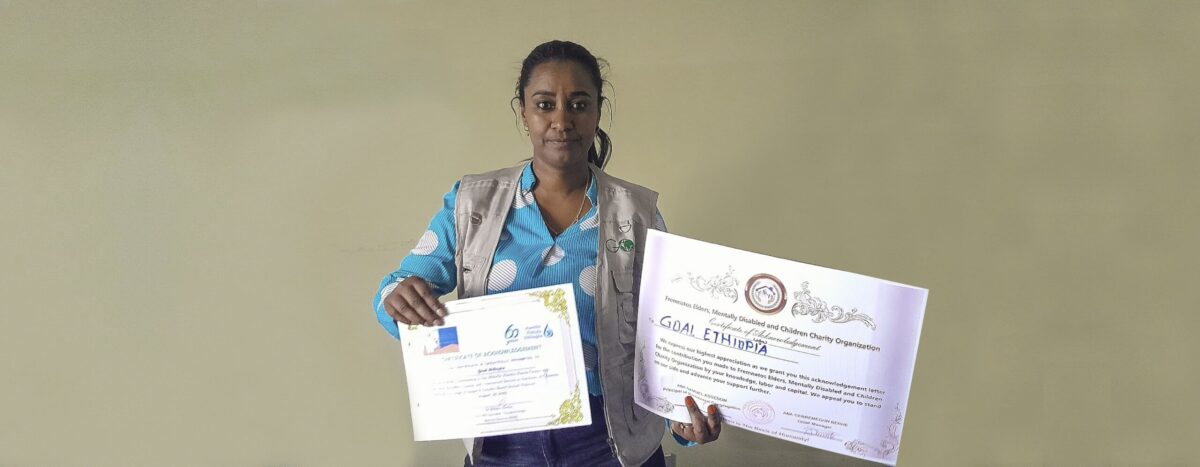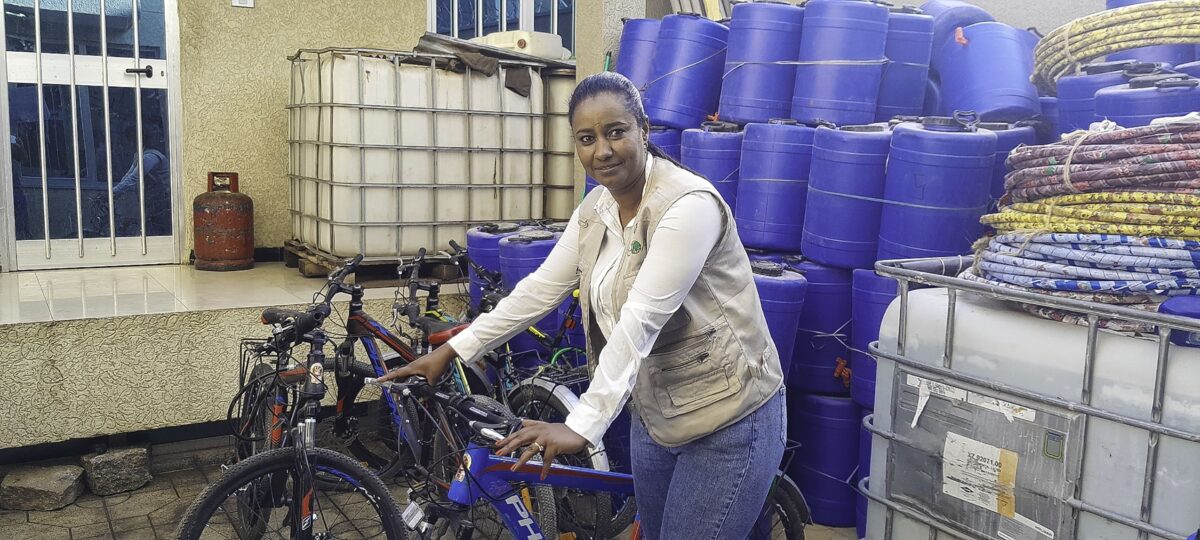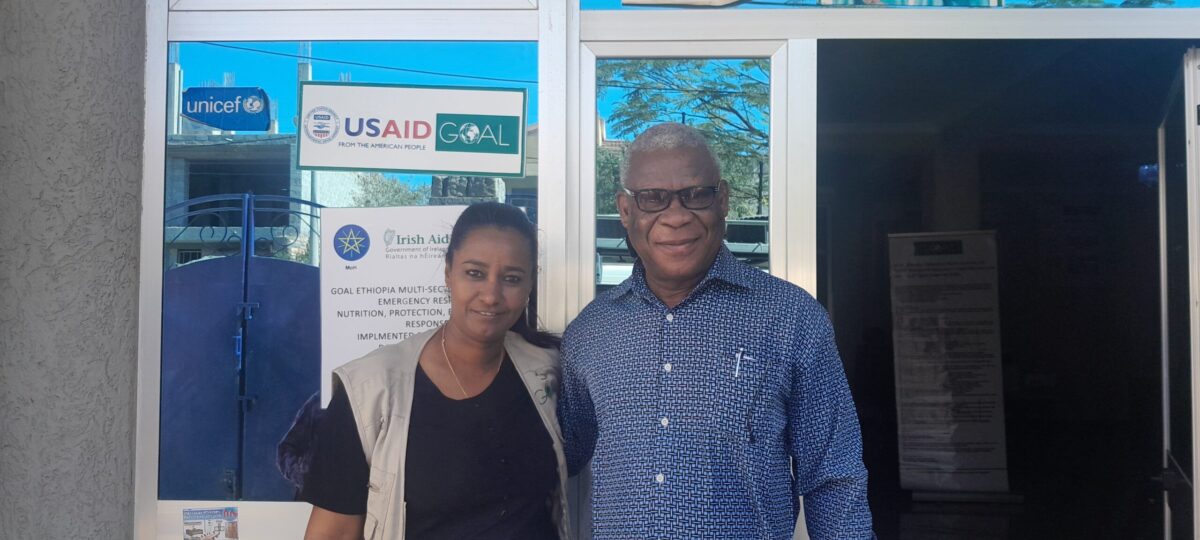 Stories
Stories
March 14, 2023 • 3 min read
For over two years, conflict in the Tigray region of Ethiopia has caused a significant loss of life, destruction of property and infrastructure. The conflict also complicated the delivery of aid to communities in need.
In response to the Tigray crisis, GOALies in Ethiopia quickly set up emergency teams in health, nutrition, programme specialists and support staff, led by GOAL’s Area Manager for Tigray, Selamawit Hadush.
Assessing the humanitarian needs of the community, GOAL teams began delivering humanitarian aid in the form of health and nutritional supplies, water and sanitation items, and non-food items such as dignity kits, blankets and cooking equipment, among other items GOAL also provided logistics support for food delivery to affected communities.
“We were going through the same difficult experience as the community. However we decided to put our emotion, frustration, and stress to one side to be there for them. They were looking for some type of hope, so we had to be tougher and support our community in every way possible as humanitarians,” says Selamawit.

GOAL’s Area Manager for Tigray, Selamawit Hadush.
Already operating under difficult circumstances, GOAL’s humanitarian programming came under serious threat when the conflict intensified from July 2021.
Limited Means to Deliver Aid
While the conflict raged on, public transportation ceased to function, means of communication were extremely limited and there was no access to banking services. Due to the closure of banks, the team could not access their salaries for over 6 months. Like millions of people in the region at the time, GOAL staff and their families were struggling to survive.

Donkeys and carts being to transport humanitarian aid across challenging terrain.
By the start of 2022, GOAL’s team in Tigray continued to work with extremely limited resources. Fuel soon become very scarce. The team procured six bicycles and used them to attend cluster and implementation partner meetings. The bikes were also used to travel to UN agency compounds where communication channels were less restricted and internet access was more reliable. Staff also used the bicycles to deliver letters, travel to nearby Internally Displaced Persons (IDP) centres and visit suppliers.
During lulls in the conflict, GOALies even supported impacted communities by using donkeys and carts to transport humanitarian aid, climbing mountains and crossing rivers. In some cases, they had to walk for more than 35 to 40 kilometres from district centres to reach remote communities affected by the conflict.

The GOAL team in Tigray used bicycles to attend aid coordination meetings.
Supporting GOAL Colleagues in the Field
GOAL’s team in Addis Ababa was determined to support colleagues in Tigray in whatever way they could. They worked with local authorities in Tigray to deliver cash by hand to cover staff salaries and to continue to deliver vital aid programmes to families in need. Despitesuch difficult circumstances, GOAL’s team in Tigray were determined to continue their work and support local communities affected by the conflict.
Following the peace deal between the two forces in November 2022, access began to re-open and in January 2023, members of GOAL Ethiopia’s senior management team (SMT) travelled to Tigray’s capital Mekelle and met with the team on the ground for the first time in a year-and-a-half. Together, they visited two IDP camps and one health centre to see GOAL’s impact and to hear directly from communities and health centre officials.
“What the GOAL team did in Tigray is inspiring. The commitment of the team is exemplary for the rest of GOAL Ethiopia and GOAL teams across the world. We are not humanitarians who are willing to support only during convenient periods. We were there when it was very difficult both for the communities and for us, and will remain there as long as we’re needed,” says Billy Abimbilla, GOAL Ethiopia Country Director.

Selamawit Hadush with GOAL Ethiopia Country Director, Billy Abimbilla.
